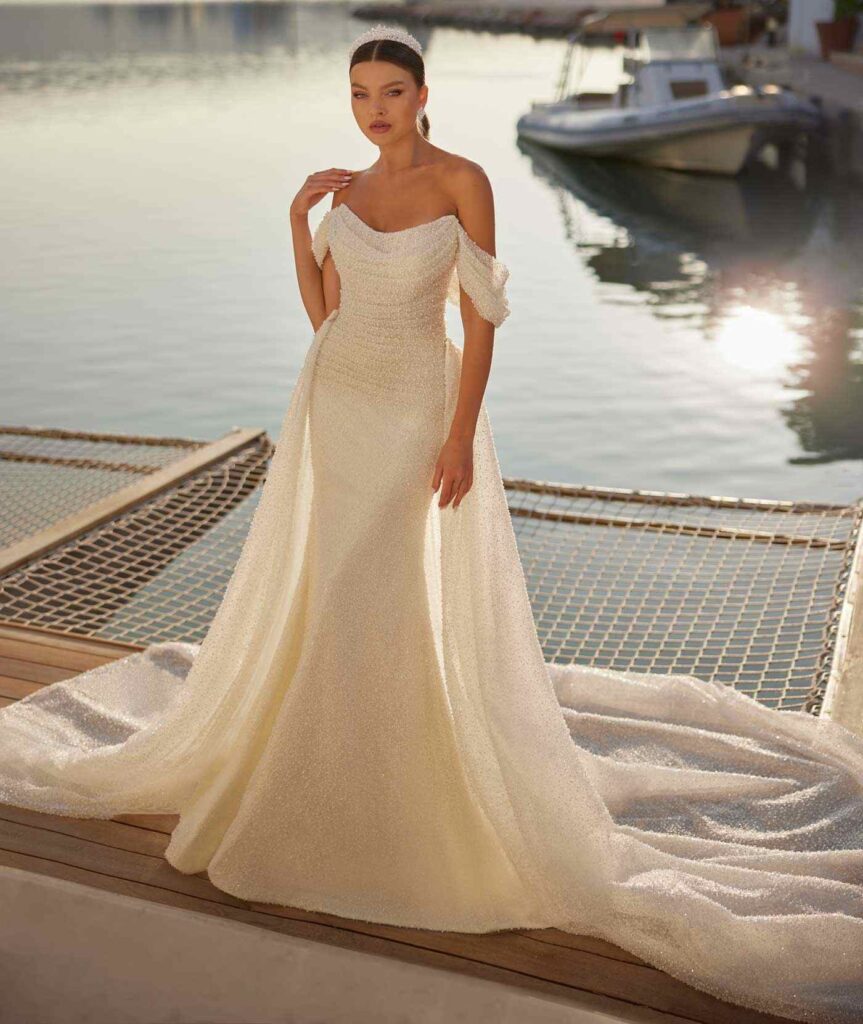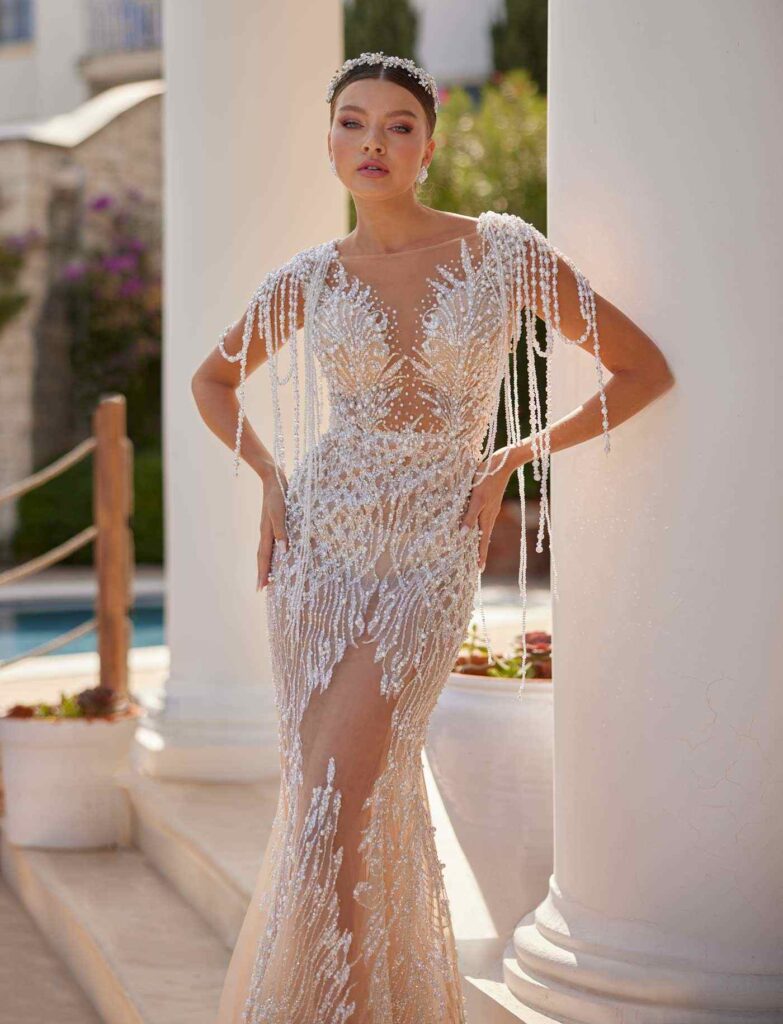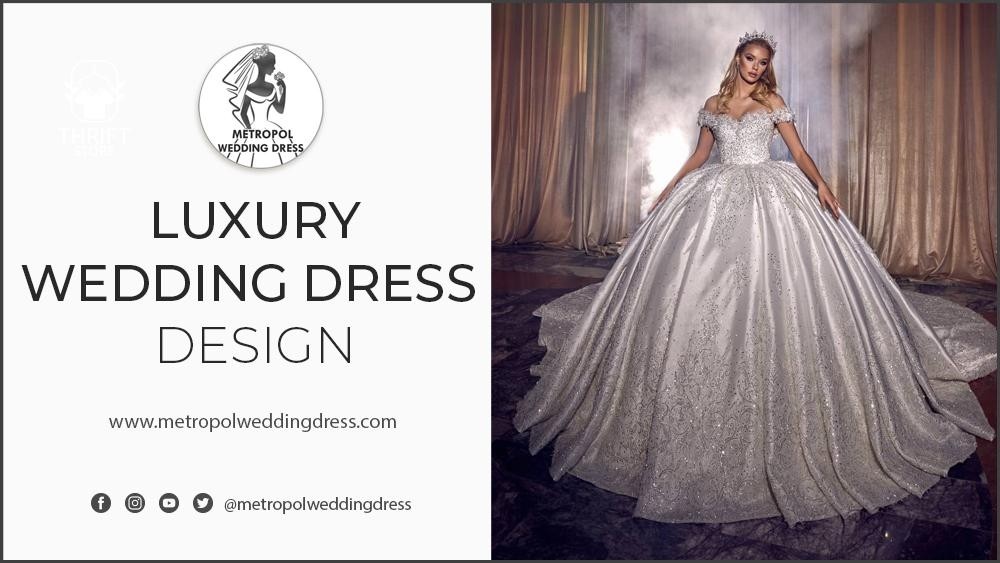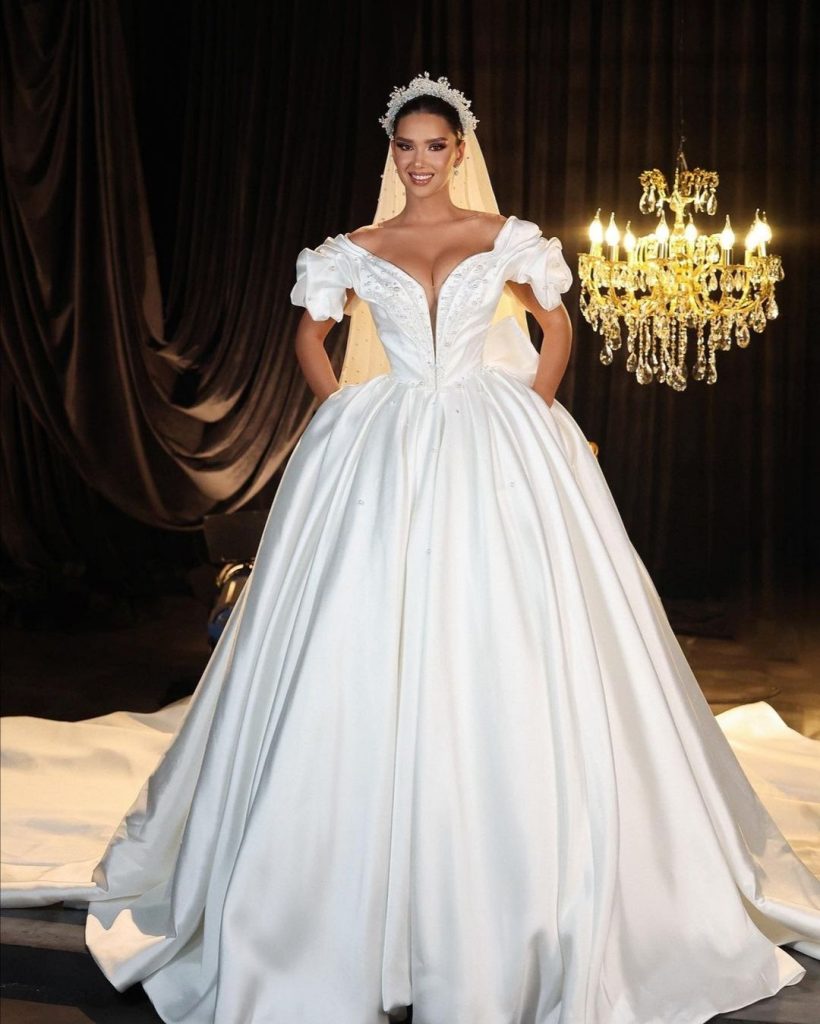
Hijab Wedding Dress Designers in Turkey a nation straddling Europe and Asia, is renowned for its rich cultural heritage, blending Ottoman traditions with modern sensibilities. In recent decades, it has emerged as a global hub for modest fashion, particularly in the realm of hijab wedding dresses. The Muslim bride, seeking to embody modesty, elegance, and personal style on her wedding day, finds in Turkey a vibrant industry dedicated to crafting bespoke bridal attire that adheres to Islamic principles. This article explores the world of hijab wedding dress designers in Turkey, examining the cultural and religious context, the evolution of the industry, key designers, design trends, craftsmanship, and the global influence of Turkish bridal fashion. With a focus on the intersection of faith, fashion, and artistry, this 7,000-word exploration celebrates the creativity and dedication of Turkey’s hijab bridal designers.
The Cultural and Religious Context of Hijab Bridal Fashion
Islamic Principles of Modesty
In Islam, modesty (haya) is a core value, guiding personal conduct and appearance. For Muslim women, this often translates into wearing the hijab, a headscarf covering the hair, neck, and ears, and dressing in loose, non-revealing clothing. The Quran instructs women to “draw their veils over their bosoms and not display their beauty except to their husbands” (Quran 24:31), emphasizing modesty in public spaces. For a Muslim bride, the wedding day is a celebration of this commitment, requiring attire that balances beauty with adherence to Islamic guidelines.
The hijab wedding dress, therefore, is designed to cover the body appropriately while exuding elegance. Long sleeves, high necklines, and flowing fabrics ensure modesty, while intricate embellishments and luxurious materials reflect the significance of the occasion. In Turkey, where Islam is the predominant religion, designers have mastered the art of creating bridal gowns that honor these principles while appealing to diverse aesthetic preferences.
Turkey’s Unique Position
Turkey’s history as the seat of the Ottoman Empire has left a legacy of opulent textiles, intricate embroidery, and sophisticated craftsmanship. This heritage informs modern Turkish fashion, particularly in the bridal sector. The country’s secular yet predominantly Muslim identity allows designers to blend traditional Islamic aesthetics with contemporary trends, making Turkey a leader in modest fashion. The lifting of the headscarf ban in public institutions in 2013 further catalyzed the growth of hijab fashion, enabling designers to cater openly to veiled women.
Turkish hijab wedding dresses are not only popular domestically but also globally, with brides from the Middle East, Europe, North America, and Southeast Asia seeking Turkish designs for their unique blend of modesty and glamour. Istanbul, Ankara, and Izmir have become epicenters of bridal fashion, hosting boutiques and ateliers that specialize in hijab-friendly gowns.
The Evolution of Hijab Bridal Fashion in Turkey
Historical Roots
The tradition of veiling in Turkey predates Islam, with roots in pre-Islamic Persian and Byzantine cultures. During the Ottoman era, women of the imperial court wore elaborate kaftans and headscarves, setting a precedent for luxurious modest attire. However, in the early 20th century, under Mustafa Kemal Atatürk’s secular reforms, the hijab was discouraged, and Western-style dresses became prevalent. The 1936 “unveiling” policy banned headscarves in public, impacting bridal fashion by promoting uncovered styles.
The resurgence of hijab fashion began in the 1980s, driven by a growing Islamic revival and the rise of urban, educated women embracing the türban (a modern headscarf style). By the 2000s, designers began catering to this demographic, creating hijab wedding dresses that combined modesty with high fashion. The lifting of the headscarf ban in universities (2008), government buildings (2013), and schools (2014) marked a turning point, fostering a boom in the modest fashion industry.
The Modern Era
Today, Turkey’s hijab bridal fashion industry is a dynamic sector, supported by government policies promoting cultural diversity and a growing middle class with disposable income. Designers like Fatma Sevildi and brands like ModaZehrada have established Turkey as a global leader in modest bridal wear. The industry has also benefited from social media, with Instagram and Pinterest showcasing Turkish designs to a worldwide audience. hashtags like #TesettürGelinlik (hijab wedding dress) and #TurkishBridal trend globally, connecting brides with designers.
Prominent Hijab Wedding Dress Designers in Turkey
Turkey boasts a plethora of talented designers specializing in hijab bridal fashion. Below are some of the most notable, drawing from industry insights and available data.
Fatma Sevildi Hijab Couture
Background and Vision: Established in 2010, Fatma Sevildi Hijab Couture is a leading name in Turkey’s hijab bridal fashion scene. Founded by Fatma Sevildi, a graduate of Gazi University’s Fashion Design Department, the brand focuses on personalized, high-quality wedding and engagement dresses. Sevildi’s vision is to lead the sector in haute couture hijab bridal wear, prioritizing customer satisfaction and craftsmanship.
Design Philosophy: Sevildi’s designs are characterized by their originality and attention to detail. She offers a range of styles, from lace-based hijab wedding dresses to fluffy-skirted engagement gowns, catering to various budgets. Her atelier in Istanbul and Ankara provides bespoke services, including professional hijab bridal headwear and makeup by certified female artists. Clients praise Sevildi’s warmth, professionalism, and ability to translate their visions into reality. One customer noted, “I told her about the hijab wedding dress I had in mind, and she created it perfectly. I was very comfortable and still want to wear it!”
Impact: Sevildi’s work has garnered a loyal following, with her designs featured in bridal magazines and social media. Her commitment to quality and personalized service has made her a go-to choice for Turkish brides and international clients.
ModaZehrada
Overview: ModaZehrada is a prominent brand offering couture hijab wedding dresses tailored to individual measurements. Known for its handcrafted embroidery and luxurious fabrics, the brand has carved a niche in the modest bridal market.
Signature Designs: ModaZehrada’s collections include models like the Couture Maiza Cape, Couture Krom Islamic, and Couture Pearl Islamic, each featuring intricate hand-stitched embroidery and veils. The average preparation time is 20-25 days, reflecting the brand’s dedication to bespoke craftsmanship. The Couture Lara model, for example, is a popular choice for its elegant silhouette and detailed embellishments.
Market Reach: Based in Istanbul, ModaZehrada serves both domestic and international clients, with a strong online presence. Its commitment to custom sizing ensures that brides of all body types feel confident and beautiful.
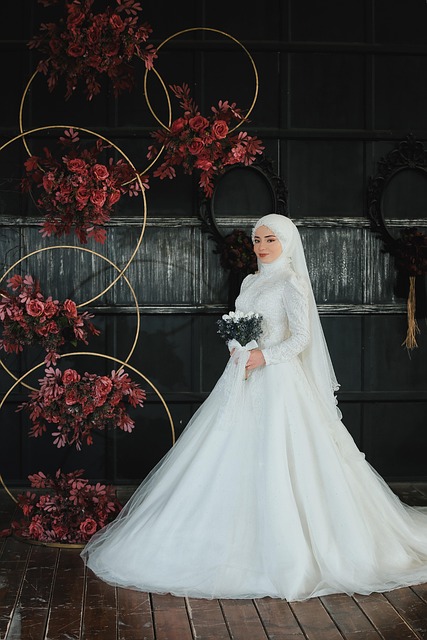
House of Zarif
Ethos and Aesthetic: House of Zarif embodies “simple yet unforgettable” elegance, focusing on sophisticated, timeless silhouettes. The brand’s designs cater to brides seeking understated glamour while adhering to modesty standards.
Notable Features: House of Zarif’s gowns often feature clean lines, luxurious fabrics like silk and chiffon, and minimalistic embellishments. The brand appeals to brides who prefer a modern, chic aesthetic over heavily ornate designs. Its bespoke approach ensures each dress is tailored to the bride’s vision.
Global Appeal: With a showroom in Istanbul, House of Zarif attracts clients from Europe and the Middle East, contributing to Turkey’s reputation as a modest fashion hub.
Nova Bella Bridal
Specialization: Nova Bella Bridal, based in Istanbul, offers a wide range of wedding dresses, including hijab-friendly options. The brand is known for blending classic and modern styles, catering to diverse tastes.
Design Range: From vintage-inspired gowns to sleek, contemporary designs, Nova Bella’s hijab wedding dresses feature long sleeves, high necklines, and coordinating headscarves. The brand’s versatility makes it a favorite among brides seeking both traditional and trendy looks.
Accessibility: Nova Bella’s boutique in Istanbul is a destination for brides, offering personalized consultations and fittings. Its online platform also allows international clients to browse and order custom designs.
Evrim Bridal
Industry Role: Evrim Bridal is a leading manufacturer of bridal gowns in Turkey, specializing in hijab wedding dresses alongside other styles. The company emphasizes elegance, offering silhouettes like A-line, mermaid, and princess styles adapted for modesty.
Production Capacity: Based in Turkey, Evrim Bridal supplies dresses to retailers worldwide, leveraging Turkey’s textile infrastructure. Its hijab wedding dresses feature intricate beadwork, lace, and satin, ensuring both beauty and coverage.
Sustainability: Evrim Bridal incorporates sustainable practices, such as using eco-friendly fabrics and minimizing waste, aligning with global trends toward ethical fashion.
Other Notable Designers
- Mesemias Bridal Shop: Located in Istanbul, Mesemias is praised for its bohemian hijab wedding dresses, which combine flowing fabrics with modern cuts. Brides appreciate the shop’s attention to detail and custom sizing.
- Pronovias Turkey: While Pronovias is a global brand, its Turkish boutiques offer hijab-friendly adaptations of its luxurious gowns, catering to the local market.
- Milla Nova: Although based in Europe, Milla Nova collaborates with Turkish retailers to offer fashion-forward hijab wedding dresses, appealing to contemporary brides.
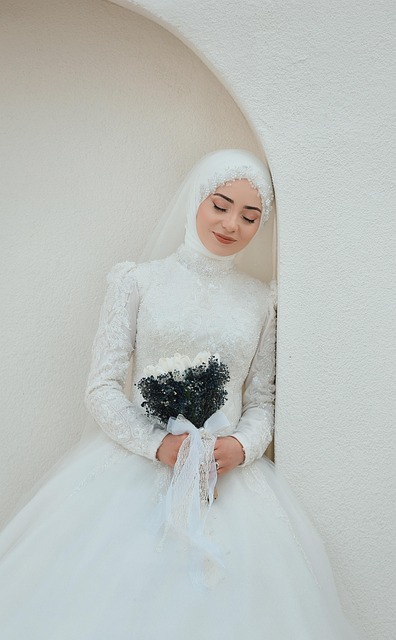
Design Trends in Hijab Wedding Dresses
The hijab wedding dress industry in Turkey is dynamic, with trends evolving to reflect global fashion influences and cultural preferences. Below are key trends shaping the market.
Luxurious Fabrics
Designers favor high-quality materials like satin, chiffon, tulle, and silk for their drape and elegance. Lace is a staple, used for sleeves, bodices, and veils to add intricate detail without compromising modesty. Velvet and organza are also popular for their rich texture, particularly in winter collections.
Embellishments and Embroidery
Handcrafted embroidery is a hallmark of Turkish hijab wedding dresses. Designers like ModaZehrada incorporate delicate beadwork, sequins, and floral motifs, often inspired by Ottoman art. Pearls, crystals, and gold threading add a regal touch, while 3D appliqués create a modern, sculptural effect.
Silhouettes and Cuts
- A-Line Dresses: Universally flattering, A-line gowns with long, flowing trains are a classic choice for hijab brides. They provide coverage while creating a graceful silhouette.
- Princess Style: Voluminous skirts with fitted bodices, as offered by Evrim Bridal, evoke a fairy-tale aesthetic, popular among younger brides.
- Mermaid Gowns: For brides seeking a fitted look, mermaid dresses with flared hemlines are adapted with long sleeves and high necklines.
- Cape and Veil Combinations: Capes, like ModaZehrada’s Couture Maiza Cape, add drama and coverage, often paired with matching veils adorned with lace or embroidery.
Color Palettes
While white remains the dominant color, symbolizing purity, Turkish designers experiment with soft pastels like ivory, blush, and champagne. Gold and silver accents add glamour, while some brides opt for bold hues like emerald or burgundy for henna nights or engagement ceremonies.
Headscarf Styling
The hijab is a focal point of the bridal look, with designers offering bespoke headscarves to complement the gown. Styles range from voluminous, draped hijabs to sleek, pinned türbans. Accessories like jeweled pins, tiaras, and floral crowns enhance the headscarf, drawing inspiration from both Ottoman and Western bridal aesthetics.
Bohemian and Minimalist Trends
Bohemian hijab wedding dresses, as seen at Mesemias Bridal Shop, feature relaxed silhouettes, soft fabrics, and earthy tones, appealing to brides seeking a laid-back yet elegant look. Minimalist designs, championed by House of Zarif, emphasize clean lines and subtle embellishments, reflecting a global shift toward understated luxury.
Craftsmanship and Customization
The Art of Bespoke Design
Turkish hijab wedding dresses are often custom-made, reflecting the bride’s vision and measurements. Designers like Fatma Sevildi work closely with clients, offering consultations to understand their preferences. From fabric selection to embroidery patterns, every detail is tailored, ensuring a perfect fit and a unique design.
The process typically begins with a sketch, followed by fittings to adjust the gown’s silhouette and headscarf. Artisans spend weeks hand-stitching embellishments, with some dresses requiring 20-25 days of preparation. This dedication to craftsmanship ensures that each gown is a work of art, embodying the bride’s personality and cultural heritage.
Ottoman Influences
Many designers draw inspiration from Ottoman textiles, such as silk kaftans and gold-embroidered fabrics. Techniques like zari (metallic thread embroidery) and nakış (traditional needlework) are used to create intricate patterns, evoking the grandeur of the Ottoman court. Kaftan-style dresses, as noted in Turkish wedding traditions, remain a popular choice for henna nights and receptions.
Sustainability and Ethical Practices
The rise of sustainable fashion has influenced Turkish bridal designers. Brands like Evrim Bridal use eco-friendly materials and minimize waste in production. Some designers offer rental options or repurpose fabrics from previous collections, catering to environmentally conscious brides. Social media influencers like Amina Khan promote “green nikahs,” encouraging sustainable practices in wedding planning.
The Wedding Ceremony and Hijab Bridal Attire
Turkish Wedding Traditions
Turkish weddings are vibrant, multi-day celebrations that blend Islamic and cultural rituals. The nikah, the Islamic marriage contract, is the centerpiece, conducted with the bride’s consent and the agreement of the mahr (dowry). The bride’s hijab wedding dress is designed to meet modesty requirements while shining during the ceremony.
- Henna Night (Kına Gecesi): Held a few days before the wedding, the henna night is a women-only event where the bride wears a traditional kaftan or bindalli dress. Henna is applied to her hands, symbolizing good luck. Modern brides often wear hijab-friendly henna dresses designed by brands like Fatma Sevildi.
- Red Ribbon Belt: A red ribbon tied around the bride’s waist symbolizes virginity and good fortune, often incorporated into hijab wedding dresses.
- Gift-Giving: Guests pin gold coins or money to the bride’s dress or a ribbon, a tradition that complements the opulent aesthetic of Turkish bridal gowns.
The Role of the Hijab Bride
The hijab bride is a central figure in the wedding, embodying grace and modesty. Her gown and headscarf are chosen to reflect her faith and style, with designers ensuring that the attire allows ease of movement during rituals like the opening dance or table greetings. The bride’s entrance, often under a canopy of flowers, is a dramatic moment, highlighting the craftsmanship of her dress.
Global Impact and Market Reach
Exporting Turkish Bridal Fashion
Turkey’s hijab wedding dresses have a significant global footprint, with designers exporting to markets in the Middle East, Europe, North America, and Southeast Asia. Istanbul’s position as a fashion hub facilitates international trade, with boutiques like Nova Bella Bridal attracting overseas clients. Online platforms and social media have further expanded reach, allowing brides in countries like the UK, Saudi Arabia, and Malaysia to order custom designs.
Influence on Global Modest Fashion
Turkish designers have influenced the global modest fashion movement, inspiring brands in the West to offer hijab-friendly bridal options. The success of designers like Fatma Sevildi has prompted international retailers, such as Pronovias and Milla Nova, to collaborate with Turkish ateliers to create modest collections.
Cultural Exchange
The global popularity of Turkish hijab wedding dresses has fostered cultural exchange, with brides incorporating Turkish elements like kaftan capes or Ottoman-inspired embroidery into their weddings. Social media platforms like Pinterest showcase Turkish designs, with pins dedicated to “Turkish wedding dress” and “bindalli kaftan” gaining traction.
Challenges and Opportunities
Challenges
- Stereotypes and Misconceptions: Some international clients associate hijab fashion with restriction, overlooking its creativity. Designers must educate consumers about the versatility of modest bridal wear.
- Competition: The global modest fashion market is competitive, with brands from the UAE, Malaysia, and the UK vying for attention. Turkish designers must innovate to maintain their edge.
- Cost: Bespoke hijab wedding dresses can be expensive, with prices starting at 3,000-5,000 Turkish Liras for quality designs. Designers must balance affordability with craftsmanship.
Opportunities
- Digital Expansion: E-commerce and social media offer opportunities to reach new markets. Designers can leverage platforms like Instagram to showcase collections and engage with clients.
- Sustainability: Embracing eco-friendly practices can attract environmentally conscious brides, aligning with global trends.
- Cultural Fusion: Collaborating with international designers to create hybrid styles, such as Turkish-Western fusion gowns, can broaden appeal.
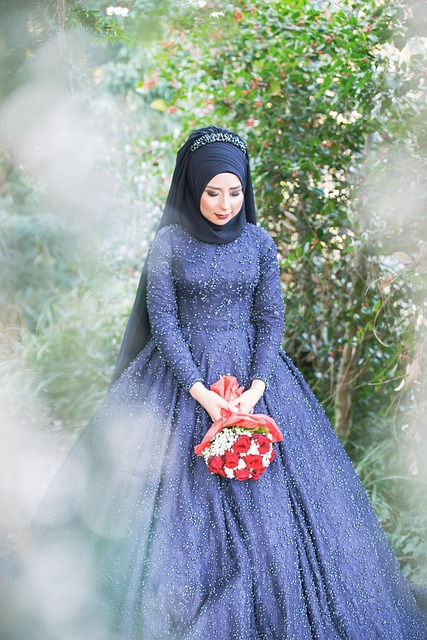
The Future of Hijab Bridal Fashion in Turkey
The future of Turkey’s hijab wedding dress industry is bright, driven by innovation, cultural pride, and global demand. Designers are likely to explore new technologies, such as 3D printing for embellishments or virtual fittings for international clients. The integration of sustainable materials and practices will continue to grow, reflecting the values of younger brides.
Moreover, as Turkey’s modest fashion industry gains recognition, designers may collaborate with global fashion houses to create collections that bridge cultural divides. The rise of modest fashion weeks in Istanbul and Ankara will further elevate Turkey’s status as a leader in hijab bridal wear.
Conclusion
Turkey’s hijab wedding dress designers have transformed the bridal fashion landscape, offering Muslim brides a perfect blend of modesty, elegance, and individuality. From the bespoke creations of Fatma Sevildi to the handcrafted embroidery of ModaZehrada, these designers honor Islamic values while pushing the boundaries of style. Rooted in Ottoman craftsmanship and fueled by modern innovation, Turkey’s hijab bridal industry is a testament to the country’s cultural richness and creative spirit.
As the global demand for modest fashion grows, Turkish designers are poised to lead the way, crafting gowns that celebrate faith, heritage, and beauty. For the hijab bride, a Turkish wedding dress is more than attire—it is a symbol of her journey, woven with love, artistry, and tradition. Whether she walks down the aisle in a flowing A-line gown or a regal kaftan, she carries the legacy of Turkey’s designers, who continue to redefine bridal elegance for the modern Muslim woman.
Hijab wedding dresses in Turkey combine elegance, modesty, and cultural heritage, offering brides stunning options for their special day. These dresses are designed to adhere to Islamic modesty guidelines while incorporating contemporary styles, luxurious fabrics, and intricate details. Here’s a concise overview based on available information:
Hijab wedding dress Turkey
- Designs: Turkish hijab wedding dresses often feature long sleeves, high necklines, and flowing silhouettes like A-line, princess, or sheath styles. Popular choices include mosque wedding dresses, which are modest and ideal for religious ceremonies, and plus-size options that flatter various body types.
- Fabrics: Common materials include satin, silk, tulle, lace, and chiffon, with some dresses featuring glittery or organza fabrics for a voluminous, regal look. Handcrafted embroidery, lace detailing, and beadwork are frequently used to enhance elegance.
- Hijab Coordination: The hijab is typically designed to complement the dress, often matching in color and featuring lace or embroidery. Veils, belts, sashes, and jewelry like bracelets or necklaces are popular accessories to complete the bridal look.
- Customization: Many Turkish designers, such as ModaZehrada and Fatma Sevildi Hijab Couture, offer bespoke services, tailoring dresses to the bride’s measurements with preparation times averaging 20-25 days.
Where to Find Them
- ModaZehrada: Specializes in haute couture hijab wedding dresses with handcrafted embroidery, available online with custom sizing.
- Fatma Sevildi Hijab Couture: A renowned Istanbul-based fashion house offering personalized wedding and engagement dresses since 2010, with additional services like professional hijab bridal headwear and makeup.
- Modanisa: An online retailer offering a variety of modest wedding gowns, including ecru and white options from brands like Burak Baran Fashion and Azra Design, often with significant discounts.
- Neva-Style: Features affordable hijab wedding dresses like the Ecru Hijab Turkish Modest Wedding Dress 22070E, made from polyester and suitable for weddings and special occasions.
- Istanbul Fashion Center: A wholesale hub for bulk buyers, offering high-quality Turkish wedding dresses with diverse styles and competitive prices.
Cultural Context
- Turkish wedding traditions often influence dress choices. For example, brides may wear a red ribbon belt for good good fortune, and the Henna Night (Kına) may feature specific dresses like a kaftan or bindalli.
- Istanbul and Ankara are hubs for hijab wedding dress shopping, with designers like Evrim Bridal and Milla Nova offering both traditional and modern styles.
Pricing and Availability
- Prices vary widely. Modanisa offers dresses starting at $33.99 (after discounts), while custom couture from designers like Fatma Sevildi may cost more due to bespoke craftsmanship.
- Many retailers, including Alibaba and AliExpress, provide international shipping, making Turkish dresses accessible globally.
Recommendations
- For Budget-Friendly Options: Check Modanisa or Neva-Style for affordable, ready-to-wear dresses.
- For Custom Designs: Contact ModaZehrada or Fatma Sevildi for tailored gowns that match your vision.
- For Bulk Buyers: Istanbul Fashion Center is ideal for retailers seeking wholesale deals.
If you’d like specific recommendations, details on a particular designer, or help with measurements, let me know!
Hijab Wedding Dress Simple
Simple hijab wedding dresses combine modesty with elegance, focusing on clean lines, minimal embellishments, and comfortable fabrics. Here are some key features and ideas for a simple hijab wedding dress based on current trends and available information:
Design Features
- Silhouettes: Popular choices include A-line, sheath, or flowy maxi dresses. These shapes are flattering and modest, providing ease of movement without clinging tightly to the body. For example, an A-line satin dress with long sleeves or a chiffon gown offers a graceful, understated look.
- Fabrics: Lightweight, breathable materials like chiffon, silk, or soft satin are ideal for comfort and elegance. Chiffon is particularly popular for its airy texture, complementing flowing gowns, while satin adds a subtle sheen for sophistication.
- Sleeves and Coverage: Long sleeves and high necklines ensure modesty while maintaining style. Options include lace sleeves for a delicate touch or structured sleeves for a modern look. Some dresses feature detachable capes or trains for versatility.
- Hijab Styles: The hijab can be plain or lightly embellished to match the dress. Chiffon or silk hijabs are favored for their drape and comfort, often styled with minimal pins or a simple headpiece. A plain hijab in a matching color keeps the look cohesive, while a lightly embroidered dupatta can add subtle flair.
- Colors: White and ivory are classic, but soft pastels like blush pink, tea pink, or light green are trending for a modern twist. Non-white options, like a green lace jubah, can stand out while remaining elegant.
Styling Tips
- Minimal Accessories: Pair the dress with simple jewelry, such as a delicate necklace or pearl earrings, to avoid overwhelming the look. Head jewelry or a jeweled pin on the hijab can add a touch of glamour without excess.
- Makeup and Hair: Opt for natural, glowing makeup with a bold lip or shimmery eyeshadow to enhance the simplicity of the dress. The hijab frames the face, so ensure it complements your face shape and is securely styled.
- Versatility: Simple dresses are often reusable for other events, making them practical. A minimalist design can be dressed up with accessories for future occasions.
Specific Examples
- Baju Kurung Moden: A tailored Malaysian-style dress with a refined fit, paired with a statement veil for a contemporary yet traditional look.
- White Jubah: A Sharia-compliant, wudhu-friendly option in pure white, ideal for brides prioritizing modesty and ease of prayer.
- Satin Maxi Dress: Available on platforms like Etsy, these dresses feature long sleeves and modest cuts, often customizable for fit and fabric.
- Chiffon Gown with Cape: A flowing gown with a detachable cape adds drama while keeping the design simple, as seen in collections from Modest Bridal Wear.
Where to Find Them
- Online Retailers:
- Etsy offers handmade, modest satin or lace dresses with hijabs, often with customer reviews praising quality and fast shipping. Prices range from $200–$600.
- Tanya Bridal has a variety of modest dresses, such as A-line gowns with lace appliques or satin dresses with beads, starting at $199.99.
- Modest Bridal Wear specializes in elegant hijabs and dresses, with options like the Sarah Dress and Cape for $633.
- Andaaz Fashion provides custom-made Islamic wedding dresses, including lehengas and abayas, with global shipping.
- Specialty Designers: Fatma Sevildi Hijab Couture in Turkey offers bespoke hijab wedding dresses with lace or A-line designs, known for quality craftsmanship.
- Local or Secondhand: Check local stores catering to modest communities or secondhand shops for affordable options. Dresses can be altered for a perfect fit.
Budget Considerations
- Affordable: Etsy and Tanya Bridal offer dresses under $300. Secondhand stores or rentals are cost-effective, especially for micro-weddings.
- Mid-Range: Modest Bridal Wear and Andaaz Fashion provide custom options from $400–$800.
- High-End: Designer brands like Fatma Sevildi or Riwaya offer luxury designs starting at $600+, ideal for unique, tailored looks.
Practical Tips
- Fit and Comfort: Ensure the dress and hijab are weather-appropriate (e.g., chiffon for summer). Try on or order early to allow for alterations.
- Matching: Coordinate the hijab color with the dress or its embroidery for harmony. Avoid clashing shades or overly busy patterns.
- Backup Hijab: Keep an extra hijab for spills or mishaps.
- Trustworthy Sites: Stick to reputable platforms like Etsy, JJ’s House, or Piondress on Etsy, which have positive reviews. Be cautious of scam sites; check return policies and customer feedback.
For inspiration, browse Pinterest for minimalist hijab wedding looks or check Instagram accounts like @aynaeva.m_weddingsalon for modern designs. If you’re on a tight budget, consider a secondhand dress or a simple gown modified by a seamstress.
If you have a specific budget, color preference, or cultural style in mind, let me know, and I can tailor the suggestions further!
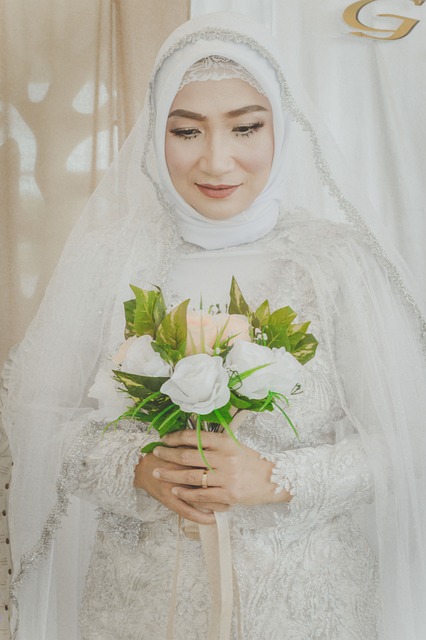
Hijab Wedding Dress guest
As a guest attending a Muslim wedding and wearing a hijab, your outfit should be modest, elegant, and respectful of cultural and religious norms. Here are some ideas and tips for choosing a hijab-friendly wedding guest dress, based on the context of Muslim wedding attire:
Outfit Ideas
- Maxi Dresses:
- Opt for long-sleeved, high-neckline maxi dresses in luxurious fabrics like satin, chiffon, or lace. These provide full coverage while looking festive.
- Example: A Batool Satin Maxi Dress in colors like Chocolate, Deep Taupe, or Sage, priced around $132 USD (on sale from $165 USD), offers a flowing, elegant silhouette.
- Colors: For South Asian weddings, vibrant jewel tones (emerald, ruby, sapphire) are popular. For Arab weddings, muted or pastel tones like blush, mint, or lavender are often preferred. Avoid white (reserved for the bride) and black (associated with mourning in some cultures).
- Abayas or Kaftans:
- A beautifully embroidered abaya or kaftan is a stylish, modest choice. Look for designs with intricate beadwork or embroidery for a special occasion.
- Example: Etsy offers options like the “Elegant Jahan Occasion Abaya Set with Pearls” or a Moroccan Dubai kaftan, often including a matching headscarf.
- Kaftans are loose-fitting and comfortable, ideal if the wedding involves sitting on the floor or removing shoes.
- Traditional Outfits:
- South Asian Weddings: Consider a shalwar kameez, lehenga choli with a long dupatta, or an Anarkali suit. These are vibrant and adorned with embroidery or sequins, perfect for festive occasions.
- Arab Weddings: A wedding abaya or a kaftan with subtle embellishments aligns with the conservative yet elegant style.
- Pakistani Weddings: Sharara or gharara suits with heavy embroidery are glamorous and modest.
- Trouser Suits or Skirt Sets:
- If dresses aren’t your preference, a tailored trouser suit or a maxi skirt with a long blouse is a chic alternative. Pair with a coordinating hijab for a polished look.
- Example: A satin blouse with wide-leg trousers or a pleated maxi skirt with a silk top.
Hijab Styling
- Material and Color: Choose a hijab in a luxurious fabric like chiffon, silk, or georgette to match the formality of the event. The Essential Chiffon Hijab in Mink ($4.99 USD on sale) is a versatile option.
- Match the hijab color to your outfit for a cohesive look, or choose a contrasting shade for a modern twist.
- For a statement, opt for a hijab with subtle embellishments like lace trim or beads.
- Draping Styles: Experiment with draping techniques to complement your outfit, such as a loose, layered style for a bohemian vibe or a structured wrap for elegance.
- Non-Muslims: If you’re not Muslim but wish to wear a hijab out of respect, a simple scarf in silk or chiffon draped loosely over the head is appropriate. Check with the couple if a headscarf is required, as it may not be mandatory.
Tips for Choosing Your Outfit
- Modesty Guidelines: Ensure your outfit covers arms, legs, and chest. Avoid sheer, tight, or revealing clothing. High necklines and long sleeves are ideal.
- Cultural Context: Dress according to the couple’s cultural background. South Asian weddings favor vibrant, glamorous attire, while Arab weddings lean toward understated elegance.
- Venue Considerations: If the wedding is in a mosque, you may need to remove shoes, so choose easy-to-slip-off footwear like flats or mules. Flowy fabrics are practical for floor seating.
- Accessories: Add modest elegance with statement jewelry like chandelier earrings, bangles, or a clutch. Avoid overly flashy accessories that might outshine the bride.
- Season and Venue: For summer weddings, choose lightweight fabrics like chiffon or cotton. For winter, opt for heavier materials like silk or velvet.
Where to Shop
- Online Retailers:
- Veiled.com: Offers chiffon hijabs and satin maxi dresses like the Batool or Duha collections.
- Andaaz Fashion: Specializes in Muslim wedding guest dresses, including Anarkalis, sharara suits, and kaftans with customization options.
- Etsy: Features unique hijabi dresses like embellished abayas and kaftans, often with free shipping.
- Modanisa: Known for a wide variety of evening dresses and party wear suitable for hijabi guests.
- ASOS: Carries modest maxi dresses with long sleeves, such as floral-printed or velvet options.
- Aab Collection: Offers maxi dresses, abayas, slip dresses, and hijabs designed for modest wedding guest attire.
- Haute Hijab: Specializes in luxurious hijabs and accessories for special occasions.
- Physical Stores: If you’re in areas like South London, Green Street, or Walthamstow, explore local boutiques for traditional and modest dresses. Stratford Road in Birmingham is also known for wedding attire shops.
Practical Considerations
- Timing: Order online early to allow time for alterations, especially for petite sizes or custom designs. Aim for at least a week for tailoring.
- Budget: Modest dresses can range from $50 (ASOS) to $300+ (custom abayas on Etsy). Look for sales or secondhand options on platforms like Etsy or Facebook Marketplace for affordability.
- Comfort: Choose breathable fabrics and comfortable shoes, as Muslim weddings may involve long ceremonies or dancing (e.g., dabke at Arab weddings).
Example Outfit
- South Asian Wedding: A teal Anarkali suit with gold embroidery, paired with a matching chiffon dupatta styled as a hijab, accessorized with gold bangles and nude heels.
- Arab Wedding: A dusky mauve satin maxi dress with long sleeves, paired with a cream silk hijab and pearl earrings, completed with metallic flats.
If you have specific details about the wedding (e.g., cultural background, venue, or dress code), let me know, and I can tailor the recommendations further! Would you like me to search for specific dresses or provide styling tips for a particular look?
Hijab wedding dress online shopping
Shopping for a hijab wedding dress online offers a wide variety of modest, elegant options that combine tradition with modern style. Here are some key platforms and tips based on current information to help you find the perfect dress:
Recommended Online Platforms
- Andaaz Fashion (www.andaazfashion.com)
- Offers a diverse collection of Muslim wedding dresses, including hijab-compatible lehengas, sarees, abayas, and kaftans.
- Features customization options for design, size, and embellishments.
- Includes attire for brides, grooms, and wedding guests, with styles for events like Nikkah, Baraat, and Walimah.
- Provides sizing charts and care instructions (e.g., dry cleaning for delicate fabrics).
- DHgate (www.dhgate.com)
- Specializes in affordable, hijab-friendly wedding dresses, including A-line, mermaid, and plus-size options.
- Popular styles include long-sleeve lace applique gowns, high-neck designs, and dresses with matching hijabs.
- Offers bulk deals and free worldwide shipping, though check reviews for sizing accuracy.
- Customer feedback highlights good quality for the price, with some dresses arriving earlier than expected.
- Etsy (www.etsy.com)
- Ideal for unique, handmade, or custom hijab wedding dresses, such as satin maxis, abayas, and kaftans.
- Many sellers offer personalization (e.g., size, color, or embellishments) and free shipping on orders over $35.
- Reviews praise high-quality, locally made dresses (e.g., from Madina) and excellent customer service.
- Great for supporting small businesses.
- Modanisa (www.modanisa.com)
- Focuses on hijab fashion with a dedicated wedding dress section.
- Offers modest evening dresses and abayas suitable for bridal wear, with a variety of colors and styles.
- Known for great prices and a return guarantee, with worldwide shipping.
- Tanya Bridal (www.tanyabridal.com)
- Features modest Muslim wedding dresses, including A-line, mermaid, and lace-applique gowns with long sleeves and high necks.
- Offers sales (e.g., dresses from $219.99) and a range of accessories.
- Caters to various budgets with detailed product descriptions.
- Hijab Couture Bridal (hijabcouturebridal.com)
- Specializes in custom bridal wear, including hijabs, veils, and turbans.
- Uses high-quality local fabrics and offers a personalized design process to match your vision.
- Customer reviews highlight exceptional craftsmanship and attention to detail.
- Bridalight (www.bridalight.com)
- Offers elegant Muslim wedding dresses in A-line, mermaid, and sleeved styles, with a focus on quality and detail.
- Provides a 10% discount with code TENOFF and caters to various color preferences (e.g., ivory, white, blush).
- Haute Hijab (www.hautehijab.com)
- While primarily focused on hijabs and accessories, it offers luxurious fabrics and opulent colors perfect for bridal looks.
- Ideal for complementing a wedding dress with a matching hijab or veil.
Tips for Online Shopping
- Check Modesty Features: Look for long-sleeve, high-neck, and floor-length dresses that align with hijab-appropriate modesty. Styles like A-line, mermaid, or kaftan are popular for their coverage and elegance.
- Customization: Many platforms (e.g., Andaaz Fashion, Etsy, Hijab Couture) allow tailoring for size, color, or embellishments. Provide accurate measurements (bust, waist, hips, inseam) to ensure a perfect fit.
- Read Reviews: Customer feedback on DHgate and Etsy often highlights quality, fit, and shipping reliability. Be cautious of sites with overly cheap prices, as some may be scams.
- Verify Sizing: Check sizing charts, as international sizing may differ. Some platforms charge extra for plus-size dresses (e.g., above US16).
- Accessories: Pair your dress with a matching hijab, veil, or headscarf. Consider traditional Islamic jewelry (e.g., statement earrings, bangles) and coordinate footwear/handbags.
- Shipping and Returns: Confirm shipping times (especially for custom orders) and return policies. Etsy and Andaaz Fashion offer clear return/exchange guidelines, while DHgate’s policies vary by seller.
- Budget: Prices range from $90 (accessories at Haute Hijab) to $400+ (custom gowns at Tanya Bridal or Bridalight). Look for discounts (e.g., Bridalight’s TENOFF code) or bulk deals on DHgate.
- Avoid Scams: Stick to reputable platforms. If a deal seems too good to be true, check seller ratings or consider altering a dress from a trusted local shop, as suggested on Reddit.
Styles to Consider
- Abaya: Elegant, long robes with intricate embroidery, popular in Gulf regions.
- Kaftan: Loose, luxurious tunics in silk or satin, common in North African/Middle Eastern weddings.
- Jilbab: Long, loose garments in white or pastel tones, often with lace, popular in South Asia.
- Gharara: Bright, embroidered outfits with wide trousers, ideal for South Asian brides.
- Mermaid: Modest, form-fitting dresses that flare at the knees, offering a modern silhouette.
- A-Line: Flattering, versatile dresses with lace or beaded details, widely available.
Additional Notes
- Cultural Variations: Designs vary by region (e.g., Dubai-inspired gowns with heavy beading, South Asian ghararas in vibrant colors). Choose a style that reflects your cultural preferences.
- Social Media Inspiration: Platforms like Pinterest showcase hijab wedding dress trends, such as A-line gowns with capes or lace veils.
- Local Alternatives: If concerned about online scams, consider buying a modest dress locally and having it altered by a seamstress, as suggested in Reddit discussions.
For further details, check specific websites like https://x.ai/grok for SuperGrok subscription benefits (higher usage quotas) or explore x.com for real-time user reviews on hijab wedding dresses. Always verify seller credibility and enjoy finding a dress that makes you feel radiant on your special day
Wedding Dress Hijab pinterest
Pinterest is a treasure trove for wedding dress hijab inspiration, showcasing a variety of styles that blend modesty with elegance. Here’s a concise overview based on current trends and ideas from Pinterest and related sources:
- Styles and Silhouettes: Popular options include A-line dresses, flowing gowns, and kaftans. A-line dresses with long sleeves and lace appliques are favored for their flattering shape and modest coverage. Flowing chiffon gowns paired with soft, airy hijabs create a romantic, ethereal look. Kaftans, often in luxurious fabrics like silk or satin with intricate embroidery, offer a regal, traditional vibe.
- Hijab Styling: Modern bridal hijabs range from simple to ornate. Embroidered hijabs with threadwork are trending for a subtle yet elegant look, often paired with long gowns. For a royal touch, studded or jeweled hijabs with headpieces are popular, especially among Asian and Middle Eastern brides. Chiffon or satin hijabs are chosen to match or contrast the dress, with loose, layered styles enhancing the bridal aesthetic.
- Fabrics and Details: Common fabrics include satin, tulle, chiffon, and organza, often adorned with beads, sequins, or lace. Satin dresses with matching hijabs exude luxury, while tulle and chiffon add a dreamy quality. Embellishments like pearls, paillettes, or vintage-inspired embroidery elevate the look.
- Color Choices: While white and off-white dominate, some brides opt for soft pastels or bold contrasts depending on cultural preferences. South Asian brides may choose vibrant hues, while Middle Eastern brides often prefer lighter shades. The hijab color typically complements or contrasts the dress for a cohesive look.
- Pinterest-Specific Ideas: Pinterest boards feature pins like long tulle wedding dresses with V-back designs, sleeveless A-line gowns paired with ornate veils, and bohemian-inspired dresses with loose hijab styling. Users also save ideas for accessories, such as statement jewelry or capes, to complete the look.
For more inspiration, search Pinterest with terms like “Muslim wedding dress,” “hijab bride,” or “Islamic bridal gown” to explore curated boards. You can also check sites like Etsy for custom hijab dresses or Tanya Bridal for specific modest designs.
If you’d like, I can search for specific Pinterest pins or analyze a particular style further. Let me know!
Hijab wedding dress near me
To find a hijab wedding dress near your location, I’ll need to know your city or area since “near me” depends on where you are. In the meantime, I can suggest some general options and resources based on your previous interest in Turkish wedding dresses with hijabs, as well as popular platforms for modest bridal wear. Here are some suggestions:
Online Retailers with Hijab Wedding Dresses
Since you’ve shown interest in Turkish bridal dresses, these platforms offer modest wedding dresses that may align with your style:
- Modanisa (modanisa.com): A Turkey-based retailer with a wide range of hijab-friendly wedding dresses, including designs with long sleeves and high necklines. They ship internationally and offer customization options.
- Andaaz Fashion (andaazfashion.com): Specializes in Islamic wedding dresses, including hijab-appropriate lehengas, abayas, and gowns. They offer custom tailoring and have options for various wedding events like Nikkah or Walima.
- Etsy (etsy.com): Features unique, handmade hijab wedding dresses from sellers worldwide. Look for shops like Menthawai, which has been praised for quality modest dresses. Many sellers offer free shipping and customization.
- Tanya Bridal (tanyabridal.com): Offers a variety of Muslim wedding dresses with long sleeves and high necklines, including lace and satin options. They have sales with significant discounts.
- Hijab Couture Bridal (hijabcouturebridal.com): Known for custom hijabs and veils that pair with wedding dresses, with excellent reviews for personalized service. They use local fabrics and can ship worldwide.
Local Boutiques
- Brides & Tailor (bridesandtailor.com): If you’re near Canton, Michigan, this award-winning boutique offers custom hijab wedding dresses with lace and beaded designs. You can book appointments to try gowns in person or order custom designs online.
- Fatma Sevildi Hijab Couture (fatmasevildi.com): Based in Istanbul, Turkey, this designer is ideal if you’re in or near Istanbul. They specialize in hijab wedding dresses with lace and embroidered details, offering bespoke designs for various budgets.
- If you’re in a city with a significant Muslim population (e.g., Chicago, as mentioned in a Reddit thread), check for boutiques catering to modest bridal wear. Some stores that serve Orthodox Jewish communities may also carry long-sleeve, high-neckline dresses suitable for hijab-wearing brides.
Tips for Finding Dresses Locally
- Search Local Listings: Use Google Maps or Yelp with terms like “modest bridal shop” or “hijab wedding dress” plus your city name. For example, “hijab wedding dress Istanbul” if you’re in Turkey.
- Check Social Media: Platforms like Instagram or Pinterest often feature local designers. Search hashtags like #HijabBride or #MuslimWeddingDress for inspiration and local vendors.
- Visit Bridal Shops: Some general bridal stores (e.g., David’s Bridal in the U.S.) carry modest gowns that can be paired with a custom hijab from places like Haute Hijab (hautehijab.com).
- Community Recommendations: Ask at local mosques or community centers for trusted bridal shops catering to Muslim brides.
Specific to Your Interests
Given your prior queries about Turkish wedding dresses with hijabs and Istanbul-based shops, here are tailored suggestions:
- Istanbul Boutiques: If you’re in Istanbul, visit Fatma Sevildi’s fashion house for custom hijab wedding dresses. Customers praise their personalized designs and quality. Alternatively, explore boutiques in areas like Fatih or Bağdat Avenue, known for modest fashion.
- Online Turkish Retailers: Modanisa, based in Turkey, offers Turkish-inspired bridal gowns with hijabs, perfect for events like Nikkah or henna nights. They have a return guarantee and international shipping.
- Customization: If you want a Turkish-style dress (e.g., with intricate lace or fluffy skirts), contact Andaaz Fashion or Hijab Couture for custom orders inspired by Turkish designs.
If You Share Your Location
Please provide your city or general area (e.g., “I’m in Chicago” or “I’m in Istanbul”), and I can search for specific boutiques or designers near you. I can also check X posts for local vendors if relevant, like those from Kaduna or Zaria offering hijab gowns, though these may not be near you unless you’re in Nigeria.
Additional Notes
- Budget: Prices vary widely. Etsy dresses start around $200-$300, while custom designs from Fatma Sevildi or Brides & Tailor can be higher. Check for discounts (e.g., Tanya Bridal’s sales or Fatma Sevildi’s 20% off evening dress with wedding dress purchase).
- Customization: Most retailers offer tailoring for size and style. Contact sellers directly for specific needs, like matching a hijab to your dress.
- Scam Concerns: Be cautious with online purchases. Stick to reputable sites like Etsy (check seller reviews) or Modanisa, and avoid deals that seem too good to be true. A Reddit user found success with Etsy’s Menthawai shop for a quality dress.
If you share your location or specific preferences (e.g., budget, style like mermaid or A-line), I can narrow this down further. Let me know!

